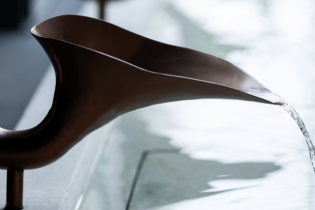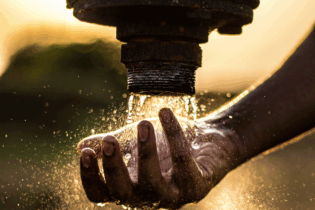South Africa, as chair of the African Union (AU), will champion infrastructure development as the key to unlock economic development and industrialisation on the continent.
In a bid to drive infrastructure development, President Ramaphosa, as AU chair, says South Africa will play an active role in driving the Presidential Infrastructure Championing Initiative (PICI). Country leaders of PICI include Algeria, Benin, Cote D’Ivoire, Egypt, Kenya, Namibia, Nigeria, Republic of Congo, Rwanda, Senegal, the Democratic Republic of Congo (DRC) and Sudan as the latest country to join PICI in 2020. Ramaphosa made the remarks as he assumed chairship of the AU during the 33rd Ordinary Session of the Assembly of Heads of State and Government in Addis Ababa, Ethiopia, over the weekend. The African Development Bank estimates that Africa’s infrastructure needs some$130 billion to $170 billion a year. “We need more dams, power plants, fibre optic cables and ports. But we also need more social infrastructure like roads, schools, public housing and clinics. “As all developing countries, we cannot sate our continent’s infrastructure hunger with our limited resources, and it goes without saying that this presents a major investment opportunity for our respective countries,” said the President. According to the African Development Bank (AfDB), the financing gap is between $68 billion and $108 billion. “This means we must think creatively and expansively about how we can close this gap. We also must be open to various financing models, such as public-private partnerships, commercial loans, development funding, and sovereign bonds,” said the President.Infrastructure development in the continent will also provide fertile ground for the African Continental Free Trade Agreement.
The implementation of this seminal agreement will boost intra-Africa trade, reignite industrialisation, and pave the way for the meaningful integration of Africa into global value chains and the global economy. This is a milestone in the continental integration project, with Africa destined to become the biggest common market in the world. “Ours is a continent on the rise. Consider for example that last year, 17 African countries grew by 3% to 5%, and 20 countries grew by 5% and above. Six of the fastest growing economies in the world are in Africa. “Foreign direct investments (FDI) to Africa grew at 11% last year, far exceeding the 4% growth in Asia, even as FDI declined by 13% globally and by 23% in developed economies,” said the President. Large infrastructure projects in the pipeline being driven by PICI include the Trans-Maghreb Highway in North Africa; the North-South Road, Rail and Related Infrastructure Corridor connecting extensive parts of Southern Africa, as well as the Central Corridor and the Abidjan-Lagos Corridor Highway. South Africa champions the North-South Corridor/Rail Project and has over the years convened a number of PICI Heads of State Breakfasts and luncheons as a precursor to the Heads of State Government Orientation Committee Infrastructure Subcommittee. “South Africa, together with PICI countries, remains committed to ensuring PICI is central to the success of the Africa Continental Free Trade Agreement, as well to the AU’s Agenda 2063. “The decisions we make now at the AU, and over the next few years, will have an extraordinary and enduring impact on our own fortunes as well as those of ordinary people on the continent,” said the President.






